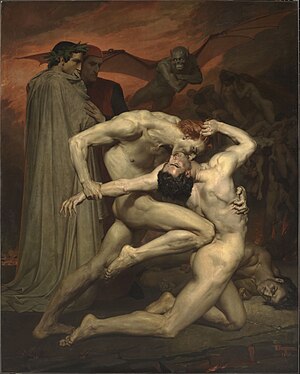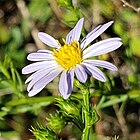Wikipedia:Main Page history/2022 December 9
From today's featured article
Nadezhda Alliluyeva (1901–1932), also known as Nadya or Nadia, was the second wife of Soviet leader Joseph Stalin. She was born in Baku to a friend of Stalin, a fellow revolutionary, and was raised in Saint Petersburg. Alliluyeva was exposed to revolutionary activity throughout her youth. Having known Stalin from a young age, she married him when she was 18, and they had two children. Alliluyeva worked as a secretary for Bolshevik leaders, including Vladimir Lenin and Stalin, and also as an assistant in the Department of Agitation and Propaganda, before enrolling at the Industrial Academy in Moscow to study synthetic fibres and become an engineer. She had health issues, which had an adverse impact on her relationship with Stalin. She also suspected he was unfaithful, which led to frequent arguments with him. On several occasions, Alliluyeva reportedly contemplated leaving Stalin. After an argument she shot herself early in the morning of 9 November 1932. (Full article...)
Did you know ...
- ... that Symphyotrichum kentuckiense (flower head pictured), the Kentucky aster, is only found on limestone cedar glades and limestone roadsides in Alabama, Georgia, Kentucky, and Tennessee?
- ... that Jarn Mound was erected to view the "dreaming spires"?
- ... that the external models of the Popcom modem have no status lights, instead providing feedback to the user through touch tones?
- ... that Burmese scholar Shaw Loo was Bucknell University's first international student?
- ... that The Sims 4 by Maxis started as an online multiplayer game, but was transitioned to a single-player experience following the negative launch reception of SimCity in 2013?
- ... that the Concerto for Piano and String Orchestra was described by its composer, Alfred Schnittke, as sounding like a "blues nightmare" at one point?
- ... that background research for Dujanah included interviews with Muslim apostates and a Scottish veteran of Afghanistan?
- ... that Chinese physician Zhang Jiebin believed that tobacco smoking was good for health?
In the news
- After a failed attempt at dissolving Congress, Peruvian president Pedro Castillo is impeached and removed from office, and Dina Boluarte (pictured) becomes the country's first female president.
- Jiang Zemin, former general secretary of the Chinese Communist Party, dies at the age of 96.
- A deadly fire in Ürümqi escalates ongoing protests across China in response to the government's zero-COVID policy.
- Anwar Ibrahim of the Pakatan Harapan coalition becomes Prime Minister of Malaysia after the general election produces the nation's first hung parliament.
On this day
December 9: International Anti-Corruption Day
- 1822 – In a memoir read to the French Academy of Sciences, Augustin-Jean Fresnel coined the terms linear, circular, and elliptical polarization, and reported a direct refraction experiment verifying his theory that optical rotation is a form of birefringence.
- 1892 – The English association football club Newcastle United was founded by the merger of Newcastle East End and West End.
- 1917 – First World War: Hussein al-Husayni, the Ottoman mayor of Jerusalem, surrendered the city to British forces (pictured).
- 2016 – Park Geun-hye, the president of South Korea, was impeached, marking the culmination of the country's political scandal.
- Nasr ibn Sayyar (d. 748)
- Joe Kelley (b. 1871)
- Feroz Khan Noon (d. 1970)
From today's featured list
Today's featured picture

|
The Divine Comedy is an Italian narrative poem by Dante Alighieri, begun around 1308 and completed in around 1321, shortly before the author's death. The poem's imaginative vision of the afterlife is representative of the medieval worldview as it existed in the Western Church by the 14th century. It helped establish the Tuscan dialect, in which it is written, as the standardized Italian language. It is divided into three parts: Inferno, Purgatorio and Paradiso. The subject of the narrative is the state of the soul after death and presents an image of divine justice meted out as due punishment or reward. In the poem, Dante travels through Hell, Purgatory and Heaven, and is accompanied by three guides: the Roman poet Virgil (who accompanies him for all of Hell and most of Purgatory), Dante's muse Beatrice (at the end of Purgatory and for most of Heaven) and Saint Bernard of Clairvaux (who guides him in the final cantos of Heaven). This oil-on-canvas painting, titled Dante and Virgil and completed by the French artist William-Adolphe Bouguereau in 1850, depicts Dante with Virgil observing two damned souls in eternal combat in Hell. Capocchio, an alchemist and heretic, is being bitten on the neck by the trickster Gianni Schicchi, who had used fraud to claim another man's inheritance. The painting now hangs in the Musée d'Orsay in Paris. Painting credit: William-Adolphe Bouguereau
Recently featured:
|
Other areas of Wikipedia
- Community portal – The central hub for editors, with resources, links, tasks, and announcements.
- Village pump – Forum for discussions about Wikipedia itself, including policies and technical issues.
- Site news – Sources of news about Wikipedia and the broader Wikimedia movement.
- Teahouse – Ask basic questions about using or editing Wikipedia.
- Help desk – Ask questions about using or editing Wikipedia.
- Reference desk – Ask research questions about encyclopedic topics.
- Content portals – A unique way to navigate the encyclopedia.
Wikipedia's sister projects
Wikipedia is written by volunteer editors and hosted by the Wikimedia Foundation, a non-profit organization that also hosts a range of other volunteer projects:
-
Commons
Free media repository -
MediaWiki
Wiki software development -
Meta-Wiki
Wikimedia project coordination -
Wikibooks
Free textbooks and manuals -
Wikidata
Free knowledge base -
Wikinews
Free-content news -
Wikiquote
Collection of quotations -
Wikisource
Free-content library -
Wikispecies
Directory of species -
Wikiversity
Free learning tools -
Wikivoyage
Free travel guide -
Wiktionary
Dictionary and thesaurus
Wikipedia languages
This Wikipedia is written in English. Many other Wikipedias are available; some of the largest are listed below.
-
1,000,000+ articles
-
250,000+ articles
-
50,000+ articles




